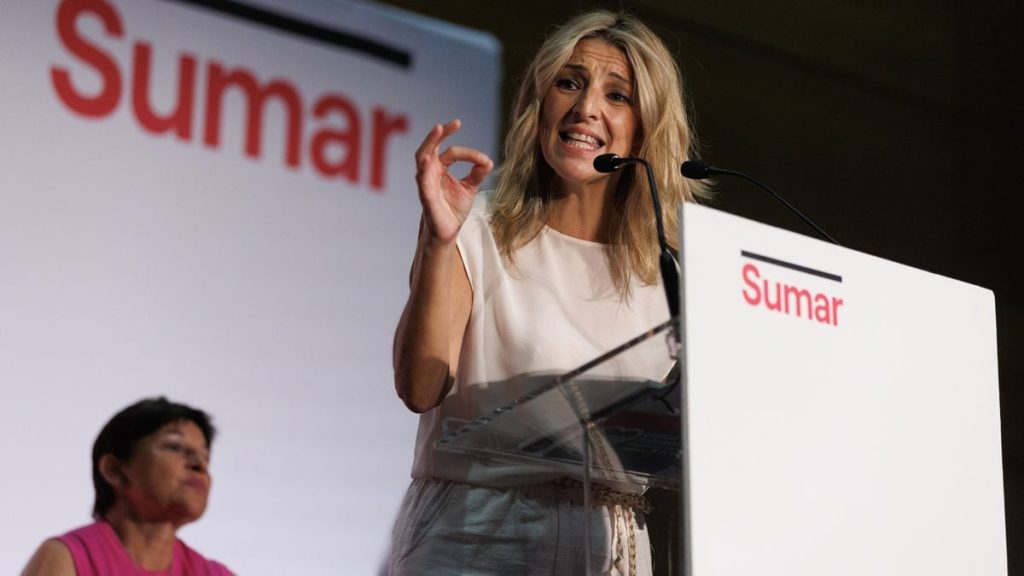In the midst of a crisis with Izquierda Unida, the coalition led by Yolanda Díaz, Sumar, has changed its plans for becoming a political organization. Originally, they were set to integrate various parties into their leadership structure, but now they have decided to only choose 70% of their leadership on the 27th without including the other organizations. This decision has raised new questions about the future of the project. With IU divided over choosing a successor to Alberto Garzón, the planned integration of Sumar’s parties has been postponed to respect IU’s internal debate. Despite these changes, Sumar remains committed to cooperation and inclusivity in their political approach.
The decision to delay the incorporation of the other organizations was made in consideration of ongoing elections in Catalonia and the internal discussions within Izquierda Unida. This move represents a shift from Sumar’s original roadmap, which involved selecting representatives from each party to form part of the leadership structures. The initial assembly of Sumar included the participation of IU, Más Madrid, Catalunya en Comú, Equo, Iniciativa del Pueblo Andaluz, and Contigo Navarra. The current situation with IU highlights the challenges of coalition building and the need for consensus among participating parties.
Despite the internal tensions and disagreements, Sumar’s spokesperson, Iñigo Errejón, emphasizes the importance of cooperation among the different parties involved. The upcoming meeting on Saturday will determine the composition of Sumar’s executive leadership, excluding political parties for the time being. Even though IU has confirmed their participation in the European elections as part of Sumar’s list, their role within the platform remains uncertain. This uncertainty reflects the larger issues facing Sumar and its partner organizations.
The upcoming European elections on June 9th will be crucial for Sumar and its allies, serving as a test of their strength and influence in the political landscape. The participation and performance of Sumar in these elections will shape the future direction of the coalition and its relationship with other left-wing parties. The complexity of the political context, including recent electoral results in Euskadi and challenges in the central government, adds further uncertainty to Sumar’s future prospects.
The developments within Sumar and its relationship with IU are also being closely watched by other parties and observers. The evolving dynamics and challenges faced by Sumar in building a cohesive platform that represents different left-wing ideologies and interests are seen as crucial for the success of the coalition. The need for a project that can unite left-wing forces and non-identitarian nationalisms remains a priority for Sumar, even as it navigates internal and external pressures.
In conclusion, the shifting dynamics within Sumar and its decision to postpone the integration of other parties into its leadership structures highlight the complexities and challenges of coalition building in contemporary politics. The future of Sumar remains uncertain, with questions surrounding its relationship with IU and other allies. The upcoming European elections will be a crucial test for Sumar and its partners, determining the trajectory of the coalition and its impact on the broader left-wing political landscape.’])->getName());


